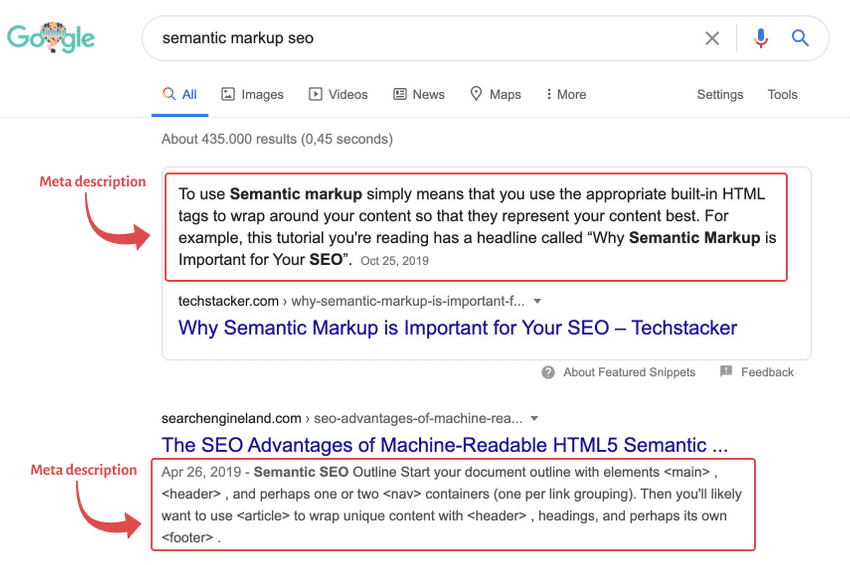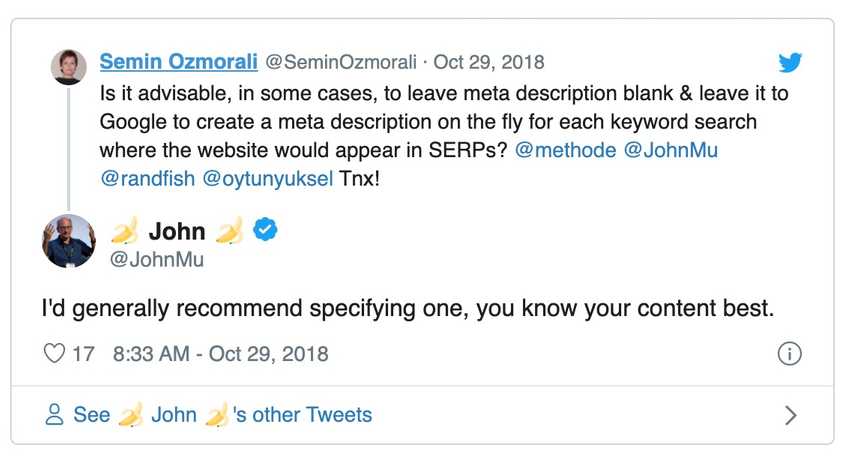Should you write your own meta descriptions to improve SEO on the SERPs (and the user experience) or is it okay to leave meta descriptions blank and let the search engines pick one for you? Let’s find out!
What is a meta description?
A meta description is the small paragraph you see on the SERPs (Search Engine Results Pages). A web page’s meta description either shows up as the very first text element in a “Featured Snippet”, or right below the title of the web page:

A good meta description is on that gives a quick summary or appetizer that gives searchers a good idea about what they can expect on the other side when they click on the this specific search result. This makes meta descriptions important for both your SEO, and UX (User Experience).
By default, search engines like Google will automatically try to fetch some text element from your content page and use that as the meta description for your blogpost, product page (any content page), if you don’t manually write it yourself.
Search engines will often pick the first paragraph of your content page (right below the main title heading) — but not always.
Sometimes the search engines will fetch another text element for the meta description because their web crawler (A.I) deem it more relevant compared to the users search terms.
Write your own meta descriptions
According to Google’s Search Engine Optimization Starter Guide you should write your own meta descriptions, for every page on your website:
Quote from the article above:
Adding description meta tags to each of your pages is always a good practice in case Google cannot find a good selection of text to use in the snippet.
Although it’s rare that Google can’t find a snippet to use, there you have another good reason to write meta descriptions yourself.
If you use a CMS like WordPress, there will either already be a meta description field available in your visual editor, or you can use a plugin/custom function to add such an input field.
If you’re working directly with the HTML code, you specify a meta description element like this:
<meta
name="description"
content="Here you add the text you want to show up in the meta description on the search results pages"
/>Is it okay to leave meta descriptions blank?
Webmaster Trends Analyst at Google @johnmu was asked about whether it was important to use meta descriptions or if you could leave them blank.
He said said that:
I'd generally recommend specifying one, you know your content best.

That said, I’ve noticed that Google will sometimes pick a snippet directly from my website content, and ignore the specified meta description.
So what’s up with that?
I speculate that Google tries to match the users exact search terms with whatever piece of web page content that seems most relevant. Sometimes a particular text element from your content page might be a better fit (in Google’s eyes) than your own meta descriptions
In summary
- The search engines ultimately decide whether to use your specified meta description or a fetch a snippet from your web site content
- If you write own meta descriptions, you at least you have a chance of showing exactly the SERPs preview that you want to your user.